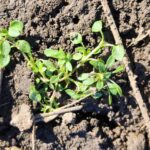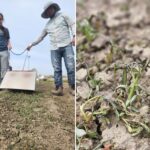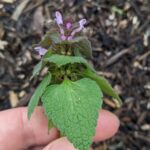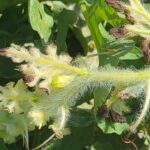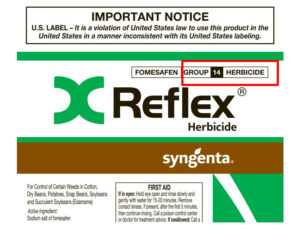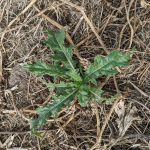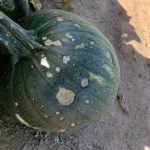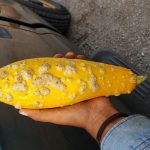Common names Common chickweed, chickweed, starwort, starweed, bindweed, chicken-weeds, winter weed, satin flower, tongue grass, chickwhirtles, cluckenweed, mischievous Jack, skirt buttons, cyrillo, and white bird’s eye. Fun fact Did you notice how many common names refer to chickens? It turns out that this weed was used as a go-to in chicken and bird diets! Latin[Read More…]
Weeds can quickly take over vegetable farms, reducing yield and interfering with harvest. Effective weed management is vital for keeping farms efficient and productive. Because every farm is unique, there is no universal weed management solution. Prior to implementing a weed control strategy, you should properly identify the problematic weeds on your farm and establish[Read More…]
Common Names Purple deadnettle, red deadnettle. Latin name Lamium purpureum. “Lamium” is derived from the Latin for “throat,” referencing the flower tube’s elongated shape. “purpureum”, also derived from the Latin, means “purple”. Family Lamiaceae – “the mint family”. Life cycle In Indiana, purple deadnettle is a winter annual. Plants emerge as small seedlings in the[Read More…]
Common names: Henbit, henbit dead nettle, henbit nettle, blind nettle, bee nettle, and giraffe head. Latin name: Lamium amplexicaule. “Lamium” is derived from the Latin for “throat,” referencing the flower tube’s elongated shape. “amplexicaule”, also derived from the Latin, means “embracing the stem,” describing the upper leaves of henbit that encircle the stem. Family: Lamiaceae[Read More…]
Throughout the growing season, vegetable crop farmers often report suspected herbicide drift injury. Each type of herbicide results in specific types of injury. Knowing what to look for can help us narrow which herbicide or herbicide mode of action could be responsible. To document how watermelon and pumpkin respond to various herbicides, we sprayed a[Read More…]
Using herbicides with different modes of action is one way to more effectively control weeds and avoid or delay herbicide resistance. But how do you know if you are rotating herbicides properly? Group Numbers. Most herbicide labels have a herbicide Group number on the front page, usually above or next to the product’s trade name[Read More…]
As of March 29, 2022, Reflex herbicide is registered for use on select vegetables in the state of Indiana through an indemnified 24(c) special local needs label. Below we discuss what this means for Indiana vegetable producers and how to access the new label. What crops are included?: Pea (succulent) Bell and non-bell pepper (transplanted)[Read More…]
The vegetable crops have all been harvested and it’s time to just relax, right? Maybe. However, the decisions you make this fall will influence your weed control next spring. In all likelihood, you did not control EVERY weed during the growing season. Inevitably, there were weeds that escaped control. If so, these weeds have already[Read More…]
Question: What happened to these fruit? Answer: Hail damage. A storm that happened in middle July brought hail to parts of Indiana. Hail hit small fruit, and damage became pronounced as fruit grow. More information about the damage to vegetable crops can be found in the article Hail Damage published in Vegetable Crops Hotline Issue[Read More…]

